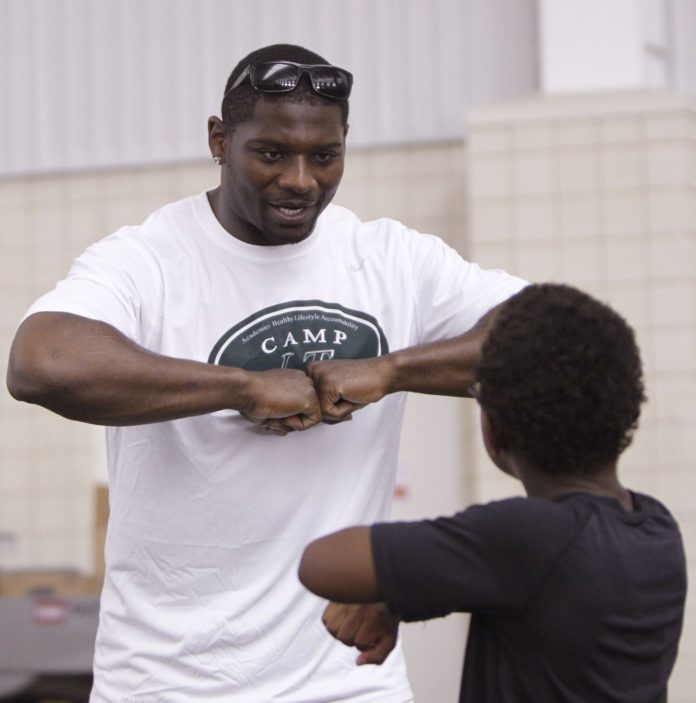You’ve all been there.
You check the schedule of breakout sessions and find one that grabs your attention. You can hardly wait for the speaker to begin.
But the presentation is deadly boring and your mind drifts as the speaker drones on and on, reading directly from the PowerPoint screen in a monotone and soon those late-night networking hours catch up and you drift off for a few minutes of sleep. That’s when you missed the phrase that could have triggered a breakthrough idea.
You might feel guilty about that, but an equal amount or perhaps most of the blame goes to the person making the presentation.
And that, says Arthur Joseph, founder and president of Vocal Awareness Institute Inc., is where a major problem in communication lies.
It should not be viewed as a presentation. It should be viewed as a performance using a most valuable tool – the human voice.
Joseph will be the featured speaker Sept. 12 at the Tandy Executive Speaker Series of the TCU Neeley School of Business, beginning at 7 a.m. at the Brown-Lupton University Union, 2901 Stadium Drive, in the third-floor ballroom.
“This is my 53rd year since I created Vocal Awareness. It’s a paradigm shift in communication, because it teaches empowerment through voice,” Joseph said in an interview.
His vision? To Change the World through Voice.
“I teach everyone that voice is power and that when you own your voice you own your power,” he says.
His website (vocalawareness.com) lists more than 400 individuals and organizations he has worked with and coached, ranging from actors to athletes to broadcasters to entire businesses such as law firms to Broadway shows.
A sampling: Angelina Jolie, Anne Bancroft, Sean Connery, Steven Seagal, Sylvester Stallone, Gary Busey, Pat Boone, Pete Seeger, LaDainian Tomlinson, Joe Namath, Michael Irvin, A Chorus Line, Cats and Pirates of Penzance.
“Something they say about singing is that the act of singing is natural, the art of singing is skill,” Joseph said.
“But when it comes to leadership, for example, who teaches us how to be ourselves? We put our title on the door, we get our MBA or whatever it may be, but do we really know how to embody leadership? Do we really know how to embody communication mastery at the same level that a great athlete or a great artist has learned their craft? Of course not,” he said.
But the good news is that it can be learned and that’s part of the process Joseph teaches.
Many people may think that speaking is a natural act that does not need skill development, but that isn’t true.
“We don’t know what we don’t know,” he says. “We didn’t know that if I change the way I breathe, or I change the way I stand, or the way I shake hands, or I the way I look at somebody, it changes my impact.”
A musical score tells the singer many things about the presentation of the song, he says, what pitch, what tempo, how loud or how soft.
And speeches – spoken performances – can also be marked up to assist in presentation.
“Traditionally, a business leader throws up a slide and has a PowerPoint bullet, or there’s a Keynote. All you have are words. In Vocal Awareness, we make voice visual into this visceral language I annotate,” he said.
An example is breath control that he has built into seven rituals that deal with public performances.
He calls it “a Conscious, Loving Breath.”
“Even the way we breathe impacts the voice. People have been taught to pause in presentations and all that. I don’t want to pause, I want to create space. I teach that a song without a rest is not the same piece of music,” Joseph says.
“Space has value. It will create thinking time for them, it allows them to breathe in a more relaxed state, and it helps them better to embody that persona, their brand. But in part, what makes them be a runaway train is the fear, the anxiety, being judged, all that kind of stuff that we all go through. We don’t realize how much work it actually takes to be ourselves while others watch,” Joseph said.
Encouraging speakers to prepare is one thing. Actually teaching them how to prepare is something else.
“Also, and this is challenging maybe to get your hands around, every public encounter is … not a presentation, it is a performance, because someone is watching or listening. But we’ve misconstrued performance and presentation. We think that a performance is inauthentic, when in point of fact, a presentation is inauthentic,” Joseph said.
That’s how Joseph sees it. And he’s shared that knowledge with others from NFL Hall of Fame inductees to Hollywood heavy hitters.
Tandy Executive Speaker Series
Sept. 12, 2018
Arthur Samuel Joseph
Founder and chairman of the Vocal Awareness Institute
PARKING: Visitor parking lot 6 or Frog Alley Parking Garage
7:00 a.m. Doors open to Brown Lupton University.
7:00-7:30 a.m. Registration, Networking, Coffee.
7:30-8:00 a.m. Doors open to ballroom. Guests seated. Breakfast served.
8:00-9:00 a.m. Conversation between Dean Erekson and speaker.
Registration
Students, Faculty and Staff are FREE but must register to attend
Non-TCU Guests are $20 per person open seating or reserve a table for eight for $250
To register: bit.ly/TandyJoseph






